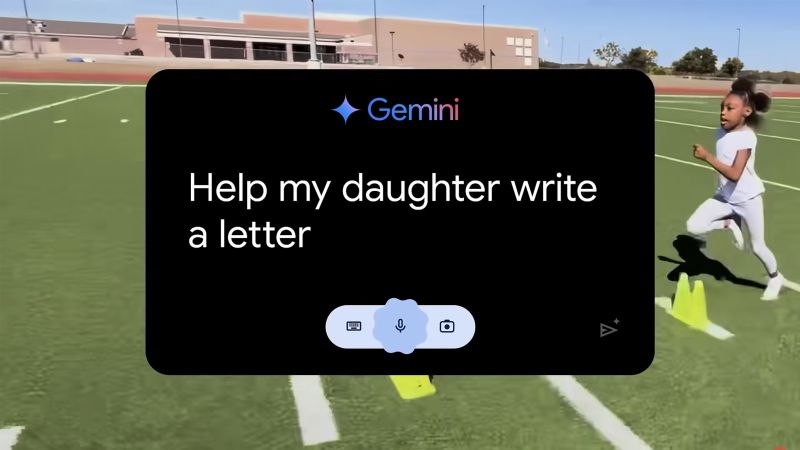Google’s controversial Olympics ad featuring its Gemini AI chatbot helping a father write a fan letter for his daughter to send to US Olympic track star Sydney McLaughlin-Levrone has been pulled after facing criticism. Many online critics questioned the use of artificial intelligence to replace a child’s creativity with words generated by a computer. Initially, Google defended the ad as showing how Gemini could provide a starting point for writing, but ultimately decided to phase the ad out of its Olympics rotation due to the feedback received.
This incident marks a significant setback for Google, as the company has been positioning Gemini as its response to competitor OpenAI’s ChatGPT and has been working on integrating AI technology into its various products, including Google Search and Gmail. The backlash against the ad highlights broader concerns surrounding artificial intelligence’s potential to displace jobs in creative fields such as writing, music, and visual arts. Apple also faced criticism earlier in the year for an ad that depicted human creativity being replaced by an iPad Pro, leading to a quick apology from the company for missing the mark with the advertisement.
The ad’s removal raises questions about the role of artificial intelligence in creative processes and the ethical implications of using AI to automate tasks that traditionally require human input. Critics argue that relying on AI for creative endeavors diminishes the authenticity and unique voice of human expression, raising concerns about the impact on various industries that depend on creativity. Google’s decision to pull the ad reflects a recognition of the public’s concerns about the application of AI in creative endeavors and the importance of preserving human creativity in an increasingly technologically driven world.
As companies like Google and Apple continue to invest in AI technology for various applications, the debate around the ethical use of artificial intelligence and its impact on creativity is likely to intensify. Balancing the benefits of AI in enhancing productivity and efficiency with the potential risks of job displacement and loss of human creativity remains a complex challenge for companies and policymakers. The controversy surrounding the Olympics ad serves as a reminder of the need for thoughtful consideration of the implications of AI in creative fields and the importance of striking a balance between technological advancement and human expression.
Moving forward, companies developing AI technologies will likely need to engage with stakeholders, including artists, writers, and other creative professionals, to ensure that the ethical use of AI respects the integrity of human creativity. The public outcry over Google’s ad and Apple’s ad earlier in the year underscores the growing awareness and sensitivity around the role of AI in creative processes. Ultimately, the responsible development and deployment of AI technology will require ongoing dialogue and collaboration between technology companies, creatives, and the broader public to address concerns and ensure that AI enhances rather than diminishes human expression and innovation.


